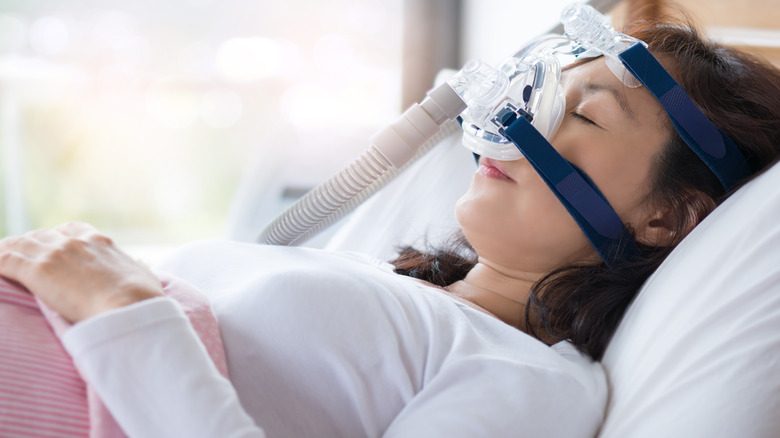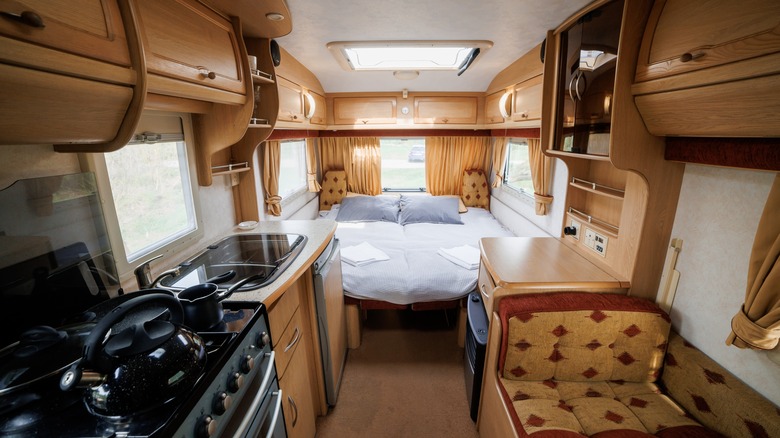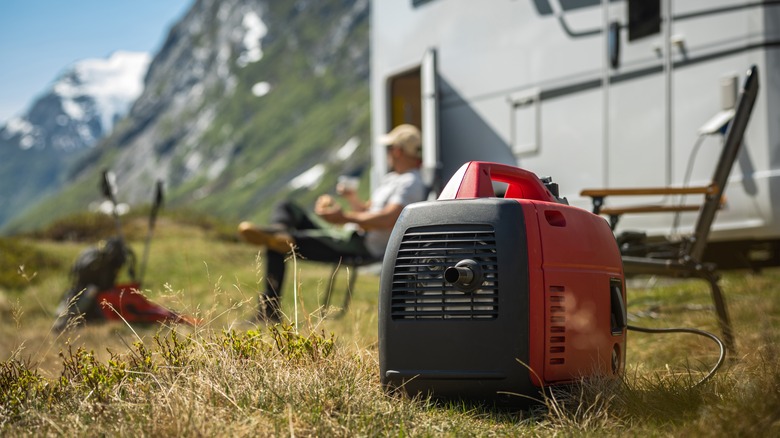Tips & Tricks For Using Your CPAP Machine While RV Camping
We may receive a commission on purchases made from links.
As anyone with a chronic condition will tell you, you can't outrun your health. You can hike a dozen miles into the wilderness and feel great, but your prescribed medicines must come with you. Pills, inhalers, glucose meters, EpiPens — whatever we need to stay healthy, each requires a special place in our luggage, no matter where we travel or for how long.
Most medications are easy to transport and use on the road. There are definitely medication mistakes to avoid when you travel, and some require special care and precautions, but most people have developed a routine. As long as we take care of that little orange bottle and know the proper dose, swallowing down the right pill is as easy as cracking a bottle of water. Even in remote locations, like wooded campsites and desert parkland, folks shouldn't have any problem with standard pharmaceuticals and medical devices.
But a CPAP poses one special problem. In general, CPAP machines are low maintenance: You need to fill the little tray with distilled water (not hard) and clean the components regularly, which is also doable. Most importantly, the machine runs on electricity. That's fine when you're traveling to well-developed cities and staying in hotels, but what happens when you're camping out in your RV? It's certainly possible to use your CPAP while sleeping inside your vehicle, but that need for power will require a little extra planning.
What is a CPAP and how do you use it?
CPAP stands for "continuous positive airway pressure." The machine is primarily designed to treat sleep apnea, a disorder that causes people to stop breathing while they're unconscious. Sleep apnea is often dismissed as just loud snoring, but the effects can be serious: subjects take in less oxygen, strain their cardiovascular system, and often feel tired and irritable during the day. This isn't some obscure problem, either. According to the American Medical Association, about 6 million Americans have been diagnosed with sleep apnea, but about 30 million may live with the condition and not even realize it. In severe cases, CPAPs can literally save lives, so leaving them at home can prove to be a vacation health hazard.
For outdoorsy folks, sleep apnea makes for very unhappy campers. Loud snoring sounds all the louder on a campground, where walls (if any) are usually thinner than at home, and RV windows are often opened up for ventilation. Airborne allergens can make the effects of sleep apnea even worse, and many campers will find themselves in a hot zone of pollen, dust, and other particulates. Ironically, a CPAP may be more necessary in a rustic setting than it is in your home, yet the machine requires an electrical socket to work.
Most RVs come with wall sockets, as do many camper vans, but in order to use them when the engine is switched off, you'll need an external electrical current. Many RVers won't have a problem, because they'll park at an established campground and hook their vehicle into the local grid. But what happens when you're parked somewhere obscure, like a parking lot or remote beach? How do you get your CPAP running without power?
Getting electricity to your CPAP
Power sources for RVs come in many different forms; the trusty and traditional method is to use a portable generator. The most popular generators run on gasoline, and there are more makes and models than anyone could count. Other fuel sources include diesel and propane, depending on the kind you prefer, and each has its costs and benefits. Generators are extremely handy, especially in wild or secluded places, so you can camp pretty much anywhere and still power your CPAP, along with other electronics.
There's a major downside, though: gas and propane-powered generators are usually loud, far louder than any human snore. The rumble lies somewhere between a chainsaw and an idling motorcycle, which might very well keep campers awake and ruin any neighbors' sleep as well. The burning fuel usually enkindles fumes, which may double the discomfort for all involved. In short, a generator may keep you breathing fluidly while asleep, but it will probably only be used as a last resort.
A greener alternative is a solar-powered battery. More and more owners are installing solar panels on their RVs, which makes a lot of sense, especially in sunny climes. Portable solar systems are easy to set up and reasonably priced; the UDPOWER Solar Generator, for example, comes with a 40-watt solar panel and a variety of outlets. You could charge the battery on your campsite or even fasten the solar panel to the roof of your RV while you drive. This is just one great way to plan an off-grid getaway.


